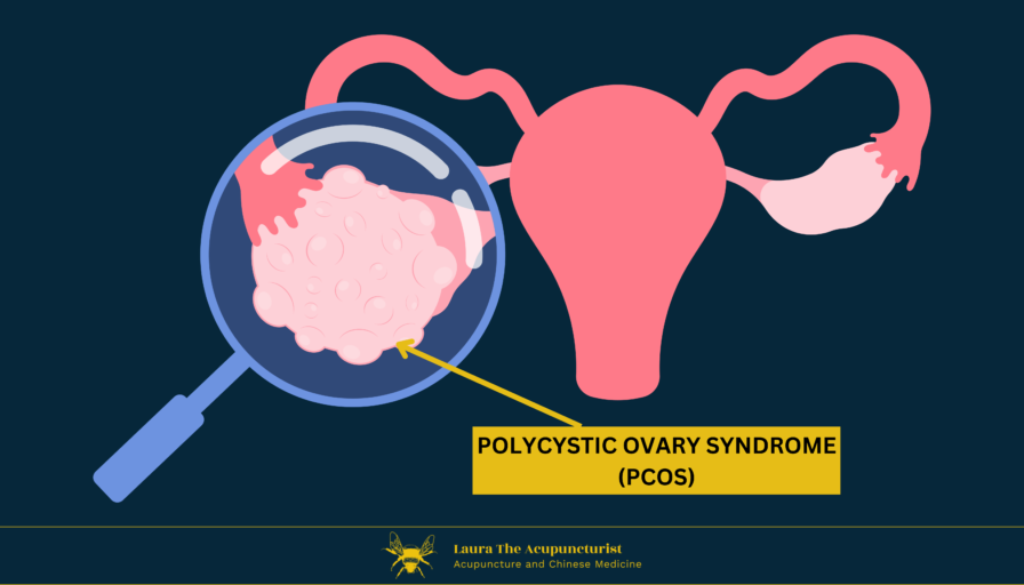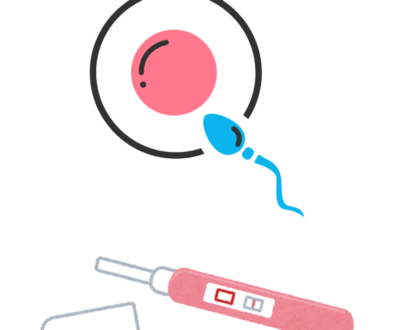Polycystic Ovarian Syndrome (PCOS) and Thyroid Dysfunction
Polycystic Ovarian Syndrome (PCOS) and thyroid disorders—two complex conditions that significantly impact women’s health. Both PCOS and thyroid imbalances share an intricate relationship, often involving the Hypothalamic-Pituitary-Ovarian (HPO) axis and the Hypothalamic-Pituitary-Thyroid (HPT) axis. These axes play a critical role in hormonal balance and, when disrupted, can lead to a wide range of symptoms affecting reproductive health, metabolism, and overall well-being. The good news is that Traditional Chinese Medicine (TCM) offers a complementary and holistic approach to managing these conditions effectively.
What is PCOS?
PCOS is a hormonal disorder often diagnosed when two of the following three criteria are present:
Androgen Excess: Excessive levels of androgens (often called “male hormones”) can lead to symptoms like hirsutism, acne, and thinning hair.
Irregular Menstrual Cycles: Periods that are longer than 34 days, erratic, or marked by heavy bleeding and pain.
Polycystic Ovaries: Multiple cysts visible on an ultrasound, often resulting from follicles that do not mature and release eggs as they should.
For many women, PCOS can make conceiving more challenging due to unpredictable ovulation patterns, reduced egg quality, and an abnormally thickened uterine lining. Diagnosis involves a combination of blood tests, symptom evaluation, and ultrasound. Importantly, it is also essential to rule out thyroid imbalances, as they can often present similar symptoms.
Thyroid Disorders: A Brief Overview
The thyroid gland regulates metabolism, energy, and hormonal balance. Thyroid imbalances—whether hypo- (underactive) or hyperthyroidism (overactive)—can have a profound effect on fertility and menstrual health.
Symptoms of Hypothyroidism:
Painful or irregular menstrual cycles.
Weight gain, sensitivity to cold, and low energy.
Mood swings, anxiety, and depression.
Symptoms of Hyperthyroidism:
Anxiety, nervousness, and fatigue.
Sensitivity to heat and muscle weakness.
Menstrual irregularities and reduced libido.
Both hypothyroidism and hyperthyroidism can severely disrupt ovulation and raise the risk of miscarriage, making fertility support crucial for women affected by these conditions.
The Power of Traditional Chinese Medicine in Managing PCOS and Thyroid Disorders
Traditional Chinese Medicine, with its use of acupuncture and herbal remedies, provides a gentle yet powerful approach to supporting the body’s natural healing processes. Unlike one-size-fits-all solutions, TCM recognises the uniqueness of each individual and targets the root causes rather than merely addressing symptoms.
TCM’s Approach to PCOS
In TCM, PCOS is often diagnosed in terms of disharmony in key organs, such as the Liver, Spleen, and Kidneys, all of which are crucial to reproductive health. The most common TCM diagnoses for women with PCOS include:
Damp Accumulation: Often stemming from a weak Spleen, leading to stagnation in the body (also described as phlegm or fatty deposits).
Kidney Deficiency: This can be either a deficiency in Yin or Yang, weakening the body’s ability to nourish reproductive organs.
Blood Deficiency: Usually related to the Liver, resulting in insufficient blood supply for vital functions, including ovulation and regular menstrual cycles.
Acupuncture plays an essential role in addressing these imbalances. By regulating hormones, acupuncture helps boost ovarian activity, improves blood and Qi flow to the uterus and ovaries, and supports the Kidney system—all of which help regulate cycles and promote ovulation. Furthermore, acupuncture helps to eliminate Dampness, allowing the reproductive system to work more effectively.
TCM’s Role in Supporting Thyroid Health
The thyroid is intimately connected with the Kidney and Spleen systems in TCM, and imbalances often reflect deficiencies or stagnation within these organs. For hypothyroidism, acupuncture works to enhance energy levels and promote better metabolism, while supporting the Spleen to boost digestion and circulation. For hyperthyroidism, acupuncture helps to calm the nervous system, reduce anxiety, and stabilise hormone production.
Chinese Herbal Medicine is also an effective part of treatment, tailored to each person’s unique pattern of imbalance. For individuals with PCOS, the herbal prescription often includes ‘blood moving’ herbs that support proper circulation and hormonal balance, helping address both androgen excess and reproductive irregularities. Herbs also work on the Spleen to tackle Dampness and nourish the Kidneys to support reproductive health. The typical treatment plan starts with a 12-week course, with adjustments as needed to maintain results.
Western vs. TCM Approaches to PCOS and Thyroid Disorders
Western medicine primarily addresses PCOS using medication like Clomid or Letrozole to stimulate ovulation, Metformin to tackle insulin resistance, and surgical procedures like Laparoscopic Ovarian Drilling (LOD). These approaches can be effective but often come with side effects, such as gastrointestinal discomfort from Metformin or hormonal imbalances from medications. Western approaches for thyroid conditions also include hormone replacement therapies, which require lifelong management.
In contrast, TCM offers a holistic, side-effect-free alternative that focuses on overall wellbeing and the root causes of the conditions. Rather than only trying to initiate ovulation, acupuncture and herbs work on stabilising the entire hormonal system and improving metabolic health, making it an attractive complement to conventional treatment options.
How Can TCM Help Improve Your Chances of Conception?
PCOS and thyroid conditions both disrupt ovulation, making conception challenging. By addressing underlying issues like Qi deficiency, Damp accumulation, and Kidney imbalances, TCM helps create a more stable hormonal environment. Here’s how TCM supports fertility:
Acupuncture and Blood Flow: Acupuncture helps improve ovarian and uterine blood flow, providing a nourishing environment for follicle development and embryo implantation.
Hormonal Regulation: Acupuncture is well-known for its ability to regulate the menstrual cycle and balance reproductive hormones, helping to support ovulation predictability.
Reducing Inflammation: Both acupuncture and herbal medicine help reduce systemic inflammation, which is beneficial for people with thyroid conditions and PCOS, as these often involve inflammatory responses.
Lifestyle Considerations and Complementary Therapies
For both PCOS and thyroid disorders, lifestyle changes can play a key role in managing symptoms and improving outcomes. Weight management and maintaining a high-protein, low-glycaemic diet are particularly helpful for PCOS, as they help regulate insulin and reduce the impact of high androgen levels.
In TCM, lifestyle adjustments such as Qigong or Tai Chi exercises are also encouraged to maintain energy flow and reduce stress. Stress can exacerbate both PCOS and thyroid imbalances, so incorporating mindfulness, movement, and balanced nutrition alongside acupuncture and herbs provides the most comprehensive care plan.
Take the Next Step in Your Healing Journey
If you suspect you have PCOS or thyroid issues, an early diagnosis is key to managing symptoms and improving fertility outcomes. Combining Western diagnostic tools and Traditional Chinese Medicine allows for a well-rounded, integrative approach to treatment.
Reach out to a certified acupuncturist or TCM practitioner to start your journey towards better reproductive health. A personalised treatment plan that includes acupuncture and herbal medicine can make a significant difference—helping to restore hormonal balance, support healthy ovulation, and enhance overall wellbeing. Whether you’re just beginning your fertility journey or looking for complementary care for a thyroid condition, TCM could be the support you need to feel your best and achieve your health goals.
For more information on PCOS, visit this site.
To schedule an appointment with Laura, click here




